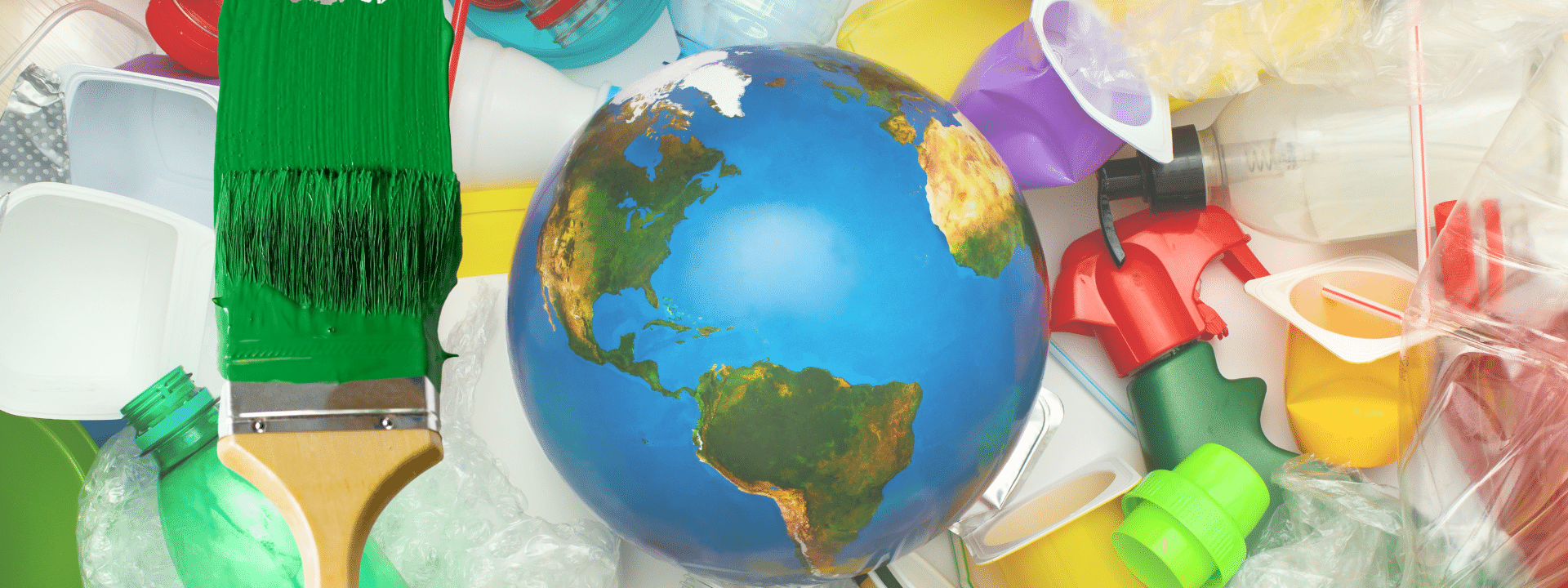Greenwashing!
What is it exactly & how can you avoid it?
Greenwashing is;
A misleading marketing tactic used by companies wanting to appear more environmentally responsible than they are. It uses unsubstantiated claims and false impressions to deceive consumers into believing a company’s brand or products are environmentally friendly.
Companies do this to take advantage of the growing trend of consumers wanting to purchase from environmentally conscious brands.
A recent global study found that 66% of consumers will spend more on a product if it comes from a sustainable brand. Among Millennials, 73% are more likely to spend more to support an ethical company.
As sustainability becomes the norm, businesses have a direct incentive to be more socially conscious, or at least appear to be.
Understanding the term greenwashing is fairly simple. But recognizing it can be tricky.
Here are some tips on how to avoid greenwashing:
Trendy Environmental Words
Consider trendy buzzwords like “green”, “sustainable”, “eco-friendly”, or “conscious”.
Companies can take advantage of the ambiguity of these terms which have no universally agreed-upon definition, and no certification process.
These words are often used without any concrete evidence to back these claims up. This brings us to the next important tip to avoid greenwashing.
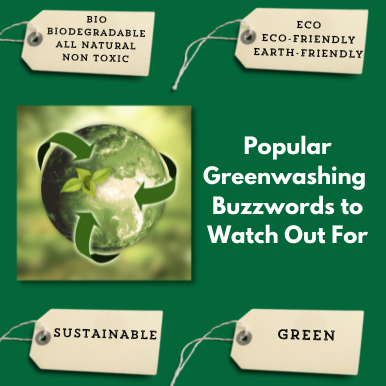
Scientific Evidence
Environmental claims should be backed up by scientific evidence.
This should be shared in plain and simple language that consumers can understand. If the information is so overtly complex that only a scientist could verify it, that may be a sign of deception.
What research have they done to support their claims?
Do they have scientific data that proves what they’re saying?
Did they conduct their own research or have their claims been verified by a reliable third-party authority?

Transparency
Companies should be able to admit they’re not perfect. They need to be willing to put the work in towards positive environmental change.
It’s a good sign when companies put out Environmental Impact Reports, however, this does not always guarantee transparency.
Those reports can be filled with trending sustainability buzzwords that are not backed by science.

Can you guess the next sign of Greenwashing?
Join Our Email Community
Gain exclusive access to green trends, tips, and tricks when you sign up for our free newsletter. Enter your email to join our community of changemakers!
Specificity
What part of their product is environmentally friendly?
- Is it the packaging?
- The manufacturing process?
- The product itself?
Companies with green products should have no problem clarifying how their product is green.
This can include a life-cycle analysis of the product from cradle to grave.
We explored the life-cycle analysis in our blog: Disposable Vs. Reusable Cups: Which one is better for the environment?
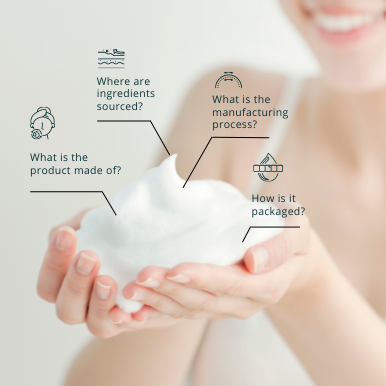
Verification
Many companies that have truly environmentally friendly products will go through the process of third-party verification.
Some of these verifications include:

Random Acts of Green stands against greenwashing
We understand that not all companies are perfect in their environmental impact, but we do not approve of deceptive marketing tactics.
As long as a company shows demonstrated effort in creating positive environmental change, we’re happy to meet them on that journey.
Read our policy on greenwashing at the button below.
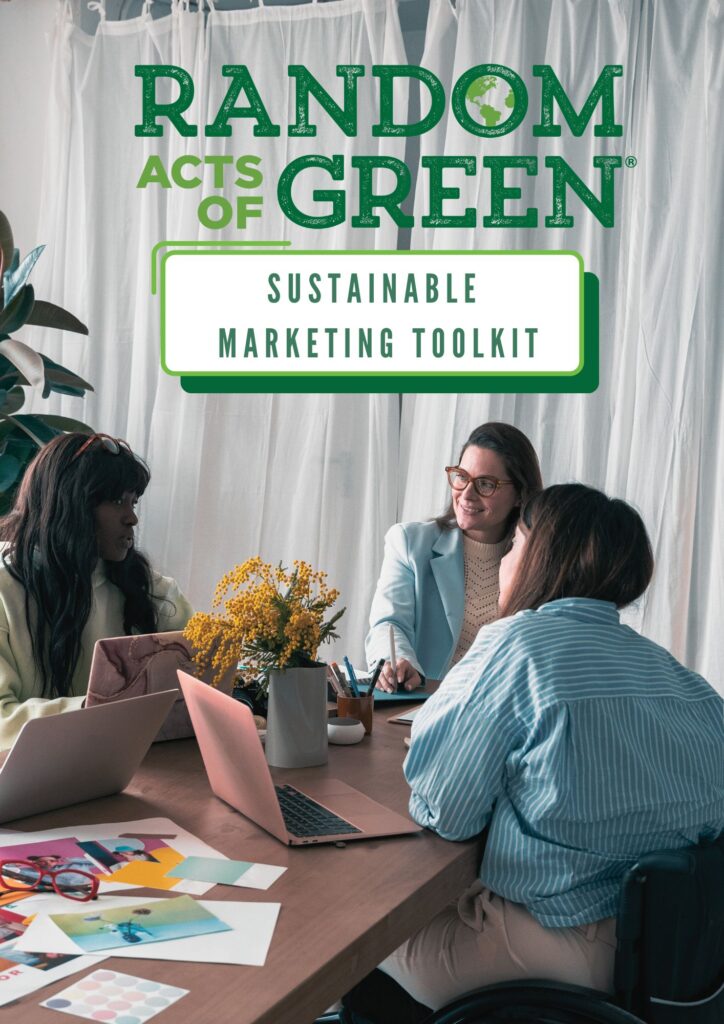
Get Our Free Sustainable Marketing Toolkit
More Blog Posts:
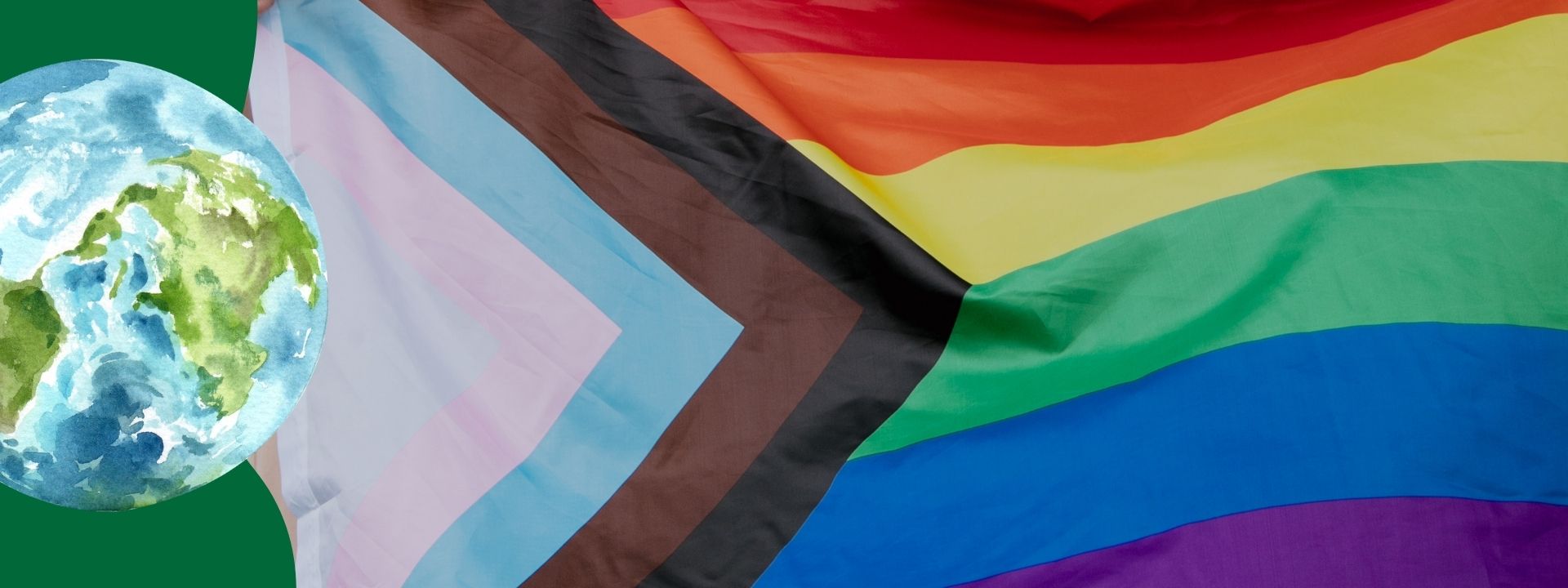
Sustainable LGBTQ Owned Brands and Organizations To Support For Pride Month (and beyond!)
Sustainable LGBTQ owned Businesses to support! Learn about the connection between this community & their inclusion in the environmental movement.

The Guide to Veganuary!
Whether you are going full vegan or starting to eat less meat, our guide to veganuary will help you go plant-based in 2023.

